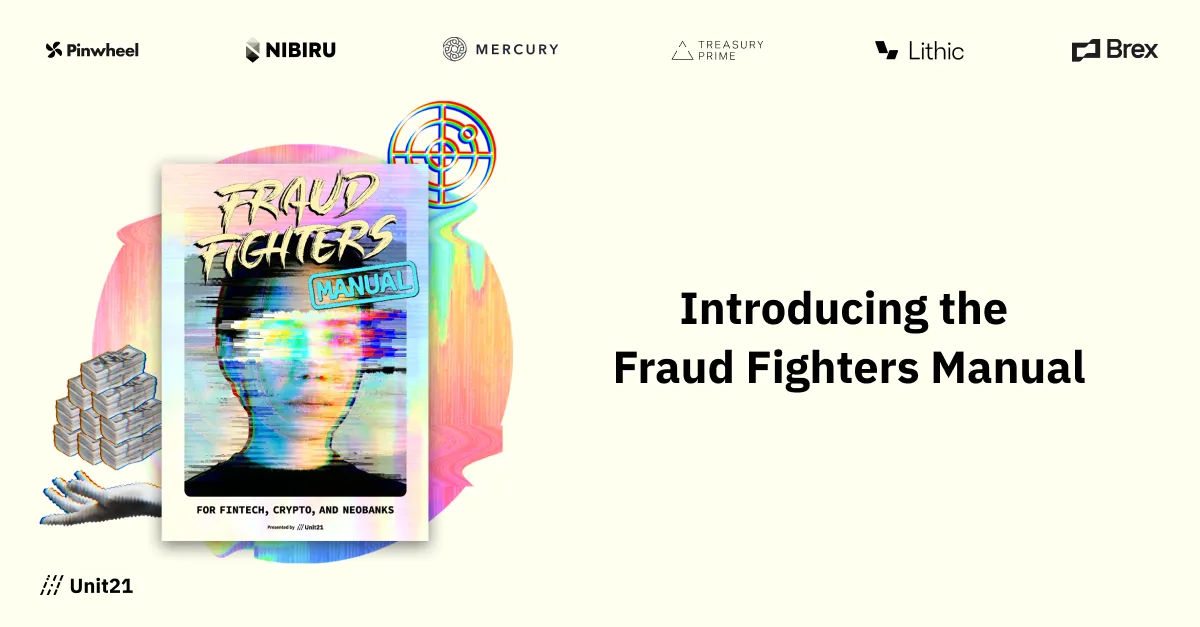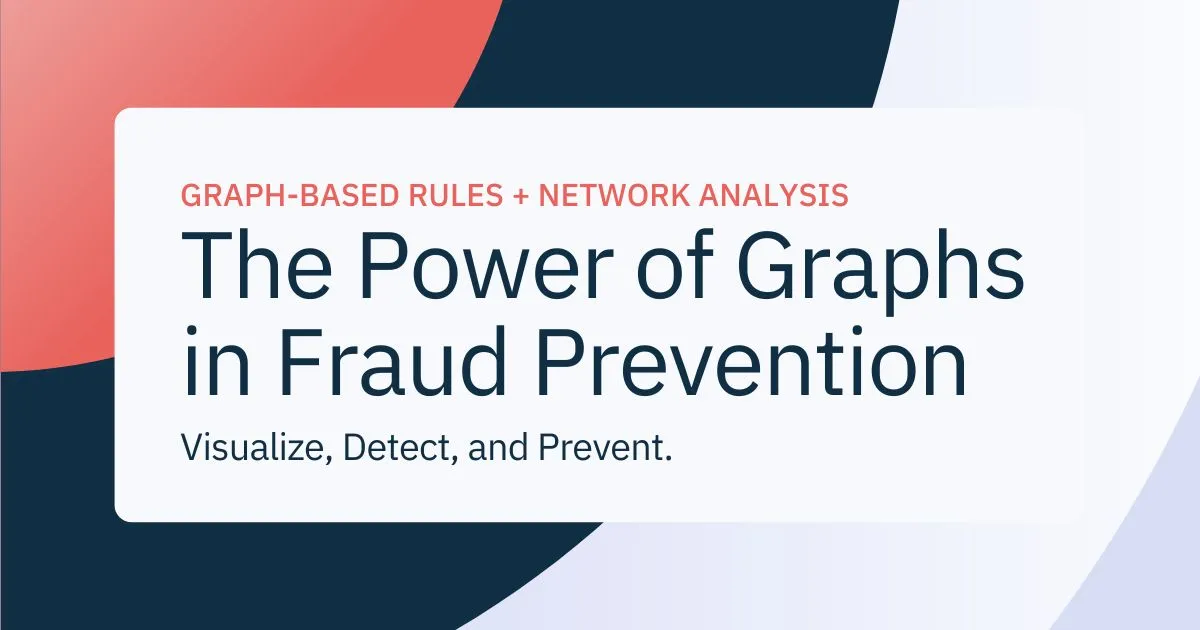

Fraud—a word that often evokes a sense of unease and secrecy. It's a topic that many organizations in the financial services industry prefer to keep hidden, for fear of tarnishing their reputations.
In fact, we could suffice it to say that many organizations view fraud as the “f-word,” a bad turn of phrase that should never be publicly uttered.
But in today's world, where fraudsters are growing more sophisticated by the day, we must shed light on this pervasive problem.
Fraud Trends from the 2020s
In the context of recent events, there are four key fraud trends and influences that have shaped the current state of fraud in the FinTech industry:
Friendly Fraud: This type of fraud involves individuals close to the legitimate customer, such as family members, using their payment information to make unauthorized purchases. Friendly fraud is challenging to detect and prevent, and it can lead to significant financial losses for businesses. Around 16% of consumers admit to committing or knowing someone who has committed payment fraud.
More Digital Channels: The growth of digital channels has made it easier for fraudsters to apply for financial products using stolen identities. The increase in digital transactions has resulted in a corresponding rise in suspected digital fraud attempts globally. Synthetic identities, which are often based on real information, are difficult to detect and have become more common due to the proliferation of digital channels.
New Technology: Technological advancements have provided fraudsters with new opportunities. Breakthroughs in artificial intelligence (AI) and machine learning enable fraudsters to bypass security measures more easily. The use of cryptocurrencies and blockchain technology makes it harder to track and trace illegal activities. The growth of the dark web has created an industry of fraud, facilitating the buying and selling of stolen information.
The Pandemic: The COVID-19 pandemic has led to increased fraud due to the rise in online activities. Lockdowns and social distancing measures prompted more people to spend time and money online, creating more opportunities for fraudsters. The rollout of pandemic relief programs has also provided additional resources for fraudsters to exploit, resulting in a surge of fraudulent activities, including phishing scams and identity theft.
The impact of the pandemic on fraud is evident in the increased number of internet fraud complaints reported to authorities. In 2020 and subsequent years, the number of internet fraud complaints remained high, indicating the prevalence of fraudulent activities in the online space.
These trends highlight the importance of adopting rigorous security measures and remaining vigilant in the face of evolving fraud tactics. FinTech companies and individuals alike must prioritize protecting sensitive information and stay informed about the latest fraud prevention strategies.
That's why we're thrilled to present, "The Fraud Fighters Manual: The Ultimate Guide for FinTech, Crypto, and Neobanks."
What’s in the Fraud Fighters Manual?
In this groundbreaking book, we have compiled insights from leading experts in the FinTech industry who have graciously shared their knowledge, experiences, and stories. Together, we aim to empower individuals and organizations to gain a deeper understanding of fraud risks and learn effective prevention strategies.
Let's face it—fraudsters thrive in the shadows. To catch them, we need to expose their tactics and illuminate the areas where they operate. Each chapter of this book is carefully crafted to provide a comprehensive overview of different fraud-related topics, such as synthetic identities, risk management, cryptocurrency fraud, account takeover, and more. We delve into the nuances of each subject, featuring enlightening quotes from our contributors and engaging Q&A sections to enrich your learning experience.
While each chapter stands on its own, we recommend reading them all in order to build a comprehensive picture of the current state of fraud and equip yourself with practical ideas for combatting it effectively.
Let's take a closer look at what you'll discover within these pages:
Chapter 1: Know Your Fraudster
We kick off our journey by introducing the three types of fraud and delving into the seven archetypes of fraudsters. Robert Reynolds from Pinwheel shares intriguing fraud instances and highlights vulnerable processes that fraudsters often exploit.
Chapter 2: Compromised and Synthetic Identities
In this chapter, we explore the world of stolen identities and synthetic identities. We uncover how fraudsters access sensitive information through dark web marketplaces, social engineering techniques, and deep fakes. Alex Faivusovich, Head of Fraud Risk at Unit21 and host of Fraud Office Hours, sheds light on the importance of understanding the methods fraudsters employ to gain consumer information.
Chapter 3: Cryptocurrency Fraud
Cryptocurrencies present a unique challenge when it comes to fraud detection and prevention. The decentralized nature and lack of regulation make it difficult to identify and stop fraudulent activities. Kevin Yang from Nibiru Chain emphasizes the significance of physical security measures and the importance of vetting cryptocurrency partners to safeguard against fraud.
Chapter 4: Account Takeover Fraud (ATO)
Account takeover fraud occurs when an attacker gains unauthorized access to a user's account and exploits it for personal gain. In this chapter, Kenny Grimes from Mercury and Tanya Corder from Treasury Prime explore the four stages of ATO and share red flags to watch out for.
Chapter 5: Fraud Detection 101
To effectively combat fraud, organizations must leverage various tools to aid their risk management teams. Zach Pierce from Lithic offers insights into the importance of regularly reviewing and updating internal policies and procedures.
Chapter 6: Risk Operations
Collaboration is key in the fight against fraud. Rajeev Muppala and Ali Rathod-Papier of Brex emphasize the importance of building a strong risk operations team and fostering collaboration within the organization.
Why Fraud is Not the F-Word
In a world where fraudsters continue to grow more sophisticated, the Fraud Fighters Manual empowers you to take a stand. By understanding different fraud types, recognizing red flags, implementing effective strategies, and speaking about your experiences with other fraud fighters worldwide, you can protect your organization (and others) from financial disruption and earn the trust of stakeholders.
While fraud may be a topic that triggers instinctual avoidance due to the associated feelings of fear and discomfort, staying knowledgeable about emerging threats, openly sharing your experiences with other fraud fighters, leveraging advanced technology, and implementing effective fraud prevention measures are critical steps to safeguard against falling victim to malicious actors.
>>Get your copy of the Fraud Fighters Manual now to see what the hype is all about.
Subscribe to our Blog!
Please fill out the form below:
Learn more about Unit21
Unit21 is the leader in AI-powered fraud and AML, trusted by 200 customers across 90 countries, including Green Dot, Chime, and Sallie Mae. One unified platform brings detection, investigation, and decisioning together with intelligent automation, centralizing signals, eliminating busy work, and enabling faster responses to real risk.








.webp)